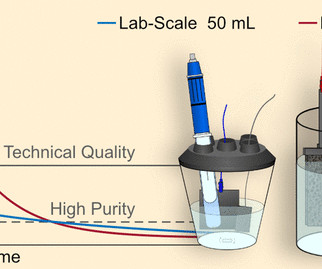Chalmers team develops method to reduce levels of mercury in sulfuric acid
Green Car Congress
JULY 10, 2023
Researchers at Chalmers University of Technology, Sweden, have developed a method that can reduce the levels of mercury in sulfuric acid by more than 90%, even from low levels. The experiments in the study were performed in a lab environment, in a 50-milliliter beaker and subsequently in a 20-liter reactor.













Let's personalize your content